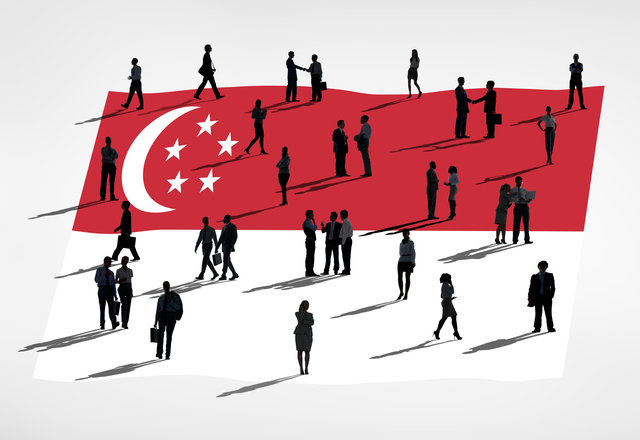“Asian Review 021” ― Singapore part 6
High level education and “Singlish”
As a result of thinking about the growth strategy for the “Country without resources, water and food”, PM Lee considered the “people” as the only resource. He had set “education” as a main pillar and created a unique educational system starting from elementary school. It is a system that distributes students by competence by PSLE (Primary School Leaving Examination).
Looking at the composition of the population, out of the 5.6 million people living in Singapore, 3.4 million people (about 60%) are Singapore citizens, 0.5 million people (about 10%) hold permanent residence rights, and the remaining 30% are expats. As for breakdown of the 3.9 million people who are citizens and permanent residence holders, 74% of them are Chinese,”13% are Malay, 9% are Indian, and 2% are others (figures by foreign ministry in 2017). Previously, there were non-English elementary schools which use Malay, Chinese and Tamil as the prime language, but since 1984, all the elementary schools started education in English. This fact, I suppose, is one of the major success factors of human resources development and economic development in Singapore afterwards.
In the Asian University ranking announced by the Times Higher Education magazine in the UK in February 2018, the National University of Singapore received the honor of the first overall ranking (the third consecutive year; 22nd in the world ranking). From Singapore, Nanyang University of Technology also ranked fifth while University of Tokyo is ranked 8th. It may also be the positive effect of PM Lee’s policy for setting English as the official language. In the “English Proficiency Index 2016 EF English Proficiency Index” report for the 950,000 adult English learners in 72 countries, Singapore was ranked 6th, while Japan was ranked 35th.
Surely the Singaporeans speaks English fluently, but on the other hand, have you heard of “Singlish”? It is English that has habits unique to Singaporeans. Surely the Singaporeans often put “la” at the end of sentence, and answer “Can, can” to questions begin with Can.
Singlish, even if it has such habits, it is easier to understand for native speakers compared to English spoken by Japanese. Recently in Japan, a number of companies are applying English as their internal official language, and a number of university are shifting out of entrance examinations that have put weight on reading and writing, but I feel that we are still halfway there.
